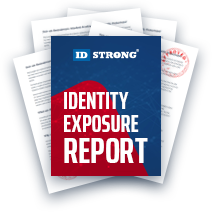How to Detect Scammer Numbers and Report Phone Scams
Table of Contents
- By David Lukic
- Published: Dec 28, 2020
- Last Updated: Mar 18, 2022
Phone scams are nothing new, but the perpetrators have become wilier and more sophisticated, using a variety of techniques to separate hard-working individuals and their money. Unfortunately, often, these types of scams target the elderly and people who cannot afford to lose their life savings. The statistics are astounding. About one in six Americans have lost money to a phone scam. These criminals use spoofed phone numbers so that it looks like the call is coming from a real source, when in fact it is scammer numbers.
Some of the Most Common Scams
Just about everyone has received the prank call that is a recorded voice saying it’s calling from the IRS, and you are in big trouble and about to be arrested if you don’t hurry up and call the number provided. Of course, it’s all a scam to get you to pay some fictitious taxes, penalties, and fees that scammers will abscond with. Some of the other top phone scams going around now are:
- Technical support calls (from Microsoft or Apple).
- Fake charity and donations calls (natural disaster recovery).
- Lottery scams.
- Family members in peril (grandson calling grandma).
- Bank fraud calls.
- Insurance, health care, and debt scams.
- Website password requests.
- Fake customer requests.
The FTC has received thousands of reports of U.S. citizens who have lost money to scammer numbers of the types listed above. Regardless of whether or not they try to threaten you or appear kind and helpful, hang up the phone. You do not need to engage with these criminals. The longer you stay on the phone, the more leverage they may have in getting you to act.
Some Signs of a Phone Call Scam
Phone scammers either use sweetness or threats to get you to comply. However, right off you can tell if it is a scam by perusing this list:
- There is an urgency to whatever the person wants from you. Nothing is that important that it needs to be done or purchased immediately. This urgency is a tip-off that it is a scam.
- If they threaten that you will be arrested, rest assured, the IRS never calls and never sends the police right over. It takes months of paperwork and late notices before anything happens with the IRS.
- If they request you send money urgently with a prepaid card or wire transfer, it is a scam.
- Most companies will never call you to have you verify your identity or provide sensitive personal information over the phone. Do not engage with these scammers.

How to Protect Yourself and Report Phone Scams
If you get a call like this, simply hang up the phone. You can also add your phone number to the National Do Not Call Registry. However, scammers probably won’t heed that warning. If your phone service offers call blocking, use that to stop them from calling you. Some other tips are:
- Don’t trust your caller ID, phone numbers can be spoofed (made to look legitimate).
- If you paid a scammer with a credit or debit card, contact your bank and stop payment. Also, have them cancel the card and re-issue a new one.
- If you paid with a prepaid gift card, contact the issuing company and let them know as well.
- If you paid via wire transfer, contact the service immediately
- Change all your passwords on any login accounts and your computer. Make them very strong passwords using a complex combination of letters, numbers, and symbols.
- Put a freeze on your credit and sign up for credit monitoring with a reputable company like IDStrong.com.
- Report the scam to the FTC at ftc.gov/complaint.



















































































































